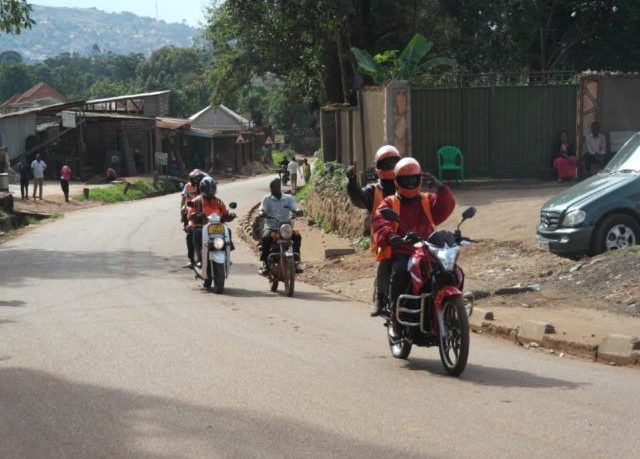E-mobility start-up company Zembo is trying to create a new market for e-mobility in the Ugandan capital Kampala with a lease-to-own business model for electric motorcycles.
With financial support from EEP Africa, Zembo is also building a network of solar charging stations around the city. The Zembo Storm e-bike is customised for African roads, assembled locally and can travel up to 60km on a single charge. Zembo is putting 200 e-bikes on the road and opening more than 15 recharge stations using a pay as you go battery swap model. The company aims to have a network of 700 solar charging stations across Uganda within five years.
Zembo co-founder Etienne Saint-Sernin: “The battery-as-a-service model decouples investment and usage, enabling more people to make the transition to e-mobility.”
EEP Africa head of portfolio and finance Lauri Tuomaala explained Zembo is a very new start-up company with not much of a track record. But, EEP Africa believes their innovative idea could have a dramatic impact on the East African e-mobility market. “This is the sweet spot for EEP Africa financing when a company needs grant funds to enable them to pilot and demonstrate new technology or a new business model.
“The focus on building local skills and capacity by assembling and repairing the bikes in Kampala was also attractive in terms of long-term sustainability. Since the project started the local government authorities have seen the climate potential for this technology and partnered with Zembo,” said Tuomaala.
Motorcycle taxis, known locally as boda bodas, are a key form of transportation in many East African cities and a leading cause of noise and air pollution. Clean energy solutions for this boda boda market could offer high impact opportunities to reduce greenhouse emissions, improve health and create green jobs.
E-mobility for jobs and clean air, in addition to transport
Kampala Capital City Authorities (KCCA) business development manager Edison Masereka: “Clean transport is one of the major interventions we can take to reduce pollution. It’s easy to work with Zembo because they have tested the technology and understand the local market.”
Zembo motorcycles are proving popular with the local market and the company has developed partnerships with drivers from local ride-hailing app SafeBoda and the KCCA. As part of an EU-funded programme for sustainable urban development, the KCCA have purchased four Zembo bikes for their municipal fleet. They are also funding a charging station staffed by members of a local youth group.
Tuomaala pointed out high upfront costs of switching from gas to electric vehicles can be reduced through both the lease-to-own and PAYG battery swap models. “The flexibility of PAYG also allowed Zembo to adjust its prices during the pilot period while the company gathered information about the true market value and worked to expanding the charging stations and other supporting infrastructure.”
He thinks this particular project stands a high chance of being replicable and scalable throughout Africa. “We’ve seen strong growth in demand for financing for e-mobility projects, especially in East Africa. As a pioneer in this sector, Zembo has tested and adapted the technology to a local market and developed partnerships that will further demonstrate the financial viability of this model, for both Zembo bikes and gas motorcycles being retrofitted to electric by other companies.”
Tuomaala points out the opportunity also exists to expand the solar charging stations model, which provide battery-as-a-service and can generate income from excess energy generated by solar panels.
Read more about Zembo’s business model in EEP Africa’s latest case study, Electric Boda Bodas
Author: Theresa Smith
Theresa Smith is a conference producer for Clarion Events Africa.
This article was originally published on ESI Africa and is republished with permission with minor editorial changes.
















